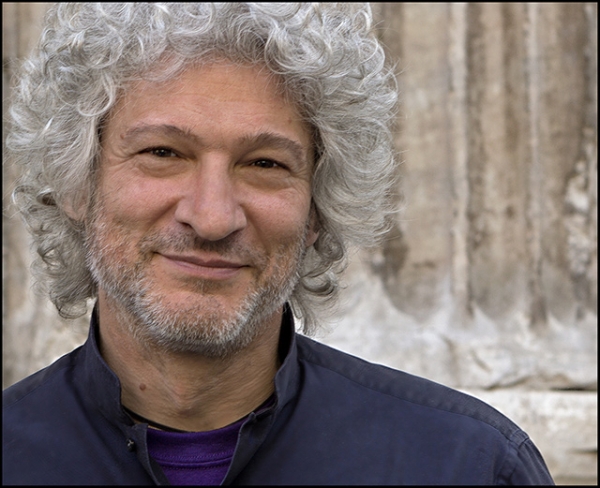Who is your favorite fictional character of all time?
In this exact moment it is a three-way tie: Achilles, Omar Little (The Wire), and Sherlock Holmes.
Who was your first favorite writer and how old were you when you discovered them?
Sir Arthur Conan Doyle at 8, Homer and Dante at 11, Dino Campana and Arthur Rimbaud at 14, Allen Ginsberg and Lawrence Ferlinghetti at 16, Franz Kafka, Samuel Beckett, and Jorge Luis Borges at 18.
What is your favorite word in any language? Which word do you find most difficult to translate?
Love (and Peace). Haunting.
What 5 books would you want with you if you were stranded on a desert island?
The Divine Comedy, The Iliad, Ulysses, Kafka’s Diaries, The Changing Light at Sandover.
Which under-translated author do you think deserves wider recognition worldwide?
David Markson!
Do you have a translation philosophy that guides your work?
Words are made of sound and pulse more than meaning. And, as Leopardi put it: “Words are the body—not the clothes—of thought.” Also: since you can’t reproduce the object-text, you have to aim to reproduce the effect that the original object-text had—or was meant to have—on its original reader.
Which of the translations that you´ve worked on was the most challenging? Why?
In good poetry, everything is always challenging: form, sound, pace, echoes… you name it. I’m very fond of so many authors and poems: I just collected my forty years of translations in a little “translation notebook” which includes approximately forty authors, and I had to leave out (for lack of space) almost as many…
But I feel like mentioning: John Ashbery, Frank Bidart, Elizabeth Bishop, Moira Egan, Anthony Hecht, Robert Lowell, James Merrill, Mark Strand. And take a look at Greg Williamson’s three-poems-in-one, his Double Exposures!
For fiction/prose, I certainly would say the short stories and the essays by John Barth: what a smart, complex, enjoyable writer he is!
How did you learn your foreign language and how did you begin working as a literary translator?
I was an AFS exchange student at Tucson, Arizona, in 1973-74. I mostly learned my English in the three weeks between my arrival and the start of school, mainly watching Sesame Street with the youngest kid in my host family.
From Tucson, I was writing to my friends back in Brescia, Italy, and at the end of each letter, I attached the translation of something I had read, or listened to, that I had found interesting; for the poems, it was mainly the Beat Generation, and for the pop lyrics, it was essentially Bob Dylan.
Since then, I have never stopped translating, and I have the same attitude: to communicate, to “tell stories,” to try to share with people I admire the work of other people I admire.
If you could have been born in a culture other than your own, which would you have chosen? Why?
I would like to have been an Apache or a Navajo. To have fought alongside them.
If you hadn’t been a translator, what profession would you like to have tried?
Well, I have tried to be an epidemiologist: as of January 14, 2014, I have 148 publications listed in the PubMed database of the US National Library of Medicine.
***
Read Damiano Abeni and Moira Egan’s translation of “Postcards from the Dead” by Franco Arminio from Asymptote’s July 2011 issue.
***
Damiano Abeni (MD, MPH) is an epidemiologist who has published volumes of Bidart, Bishop, Bukowski, Ferlinghetti, Ginsberg, Strand, Simic, C.K. Williams, and many others in Italy. He edited West of your Cities, a bilingual anthology of contemporary American poets with Mark Strand, and has published books in translation by John Barth, Mark Strand, Josephine Tey, and John Ashbery, whose collection, Un mondo che non può essere migliore: Poesie scelte 1956-2007, won a Special Prize of the Premio Napoli (2009). He has held fellowships at the Bogliasco Foundation and at the Rockefeller Foundation Bellagio Center.

